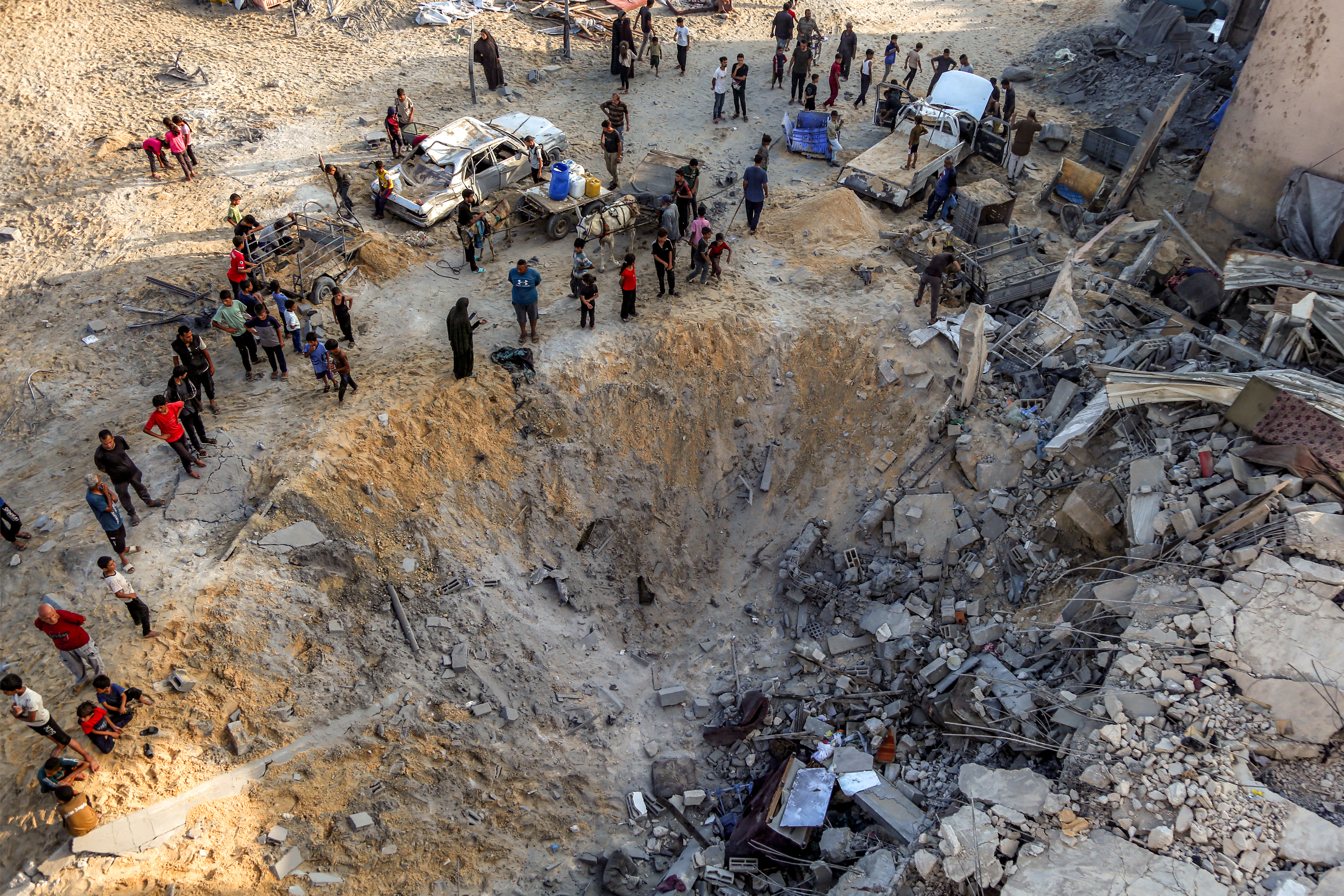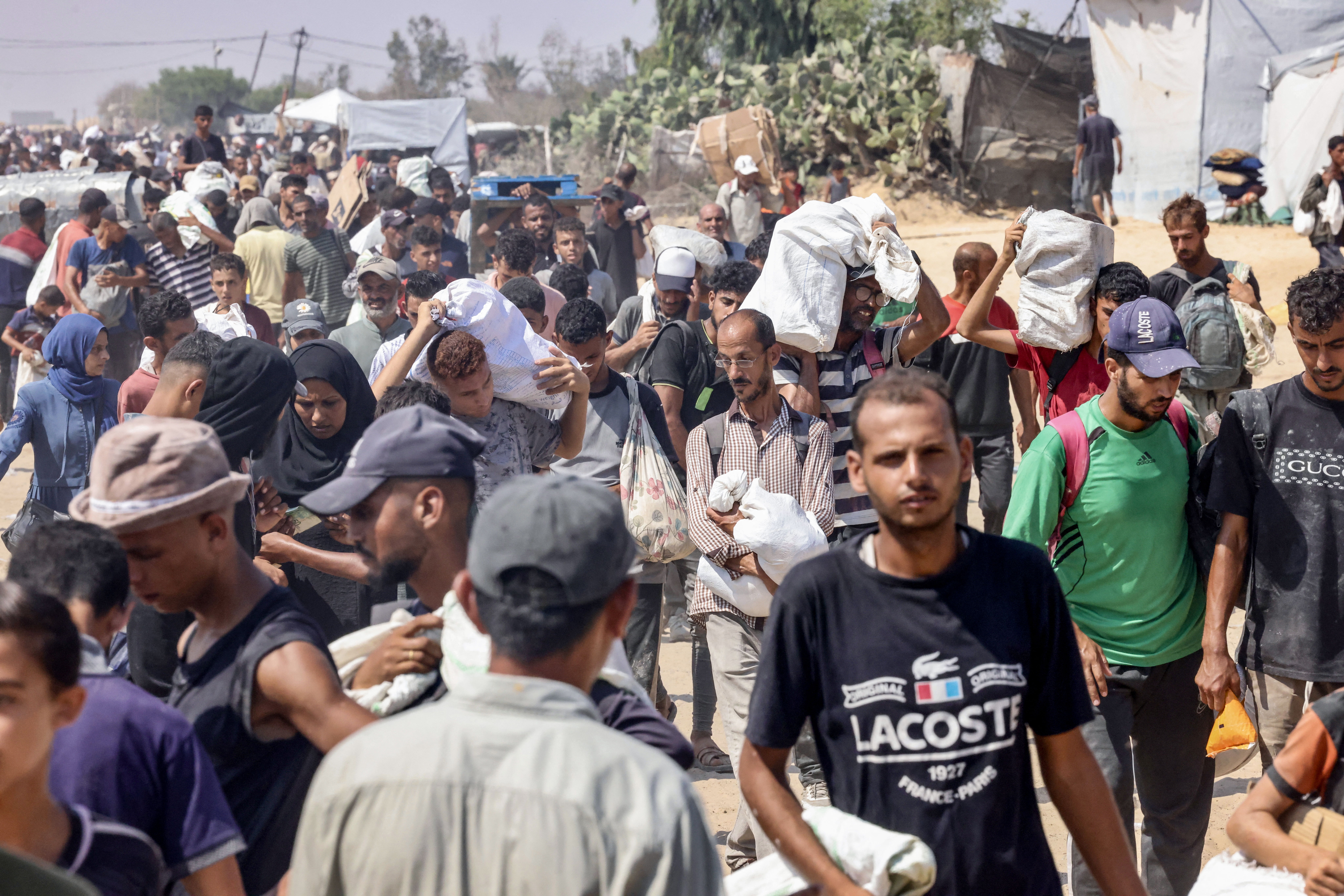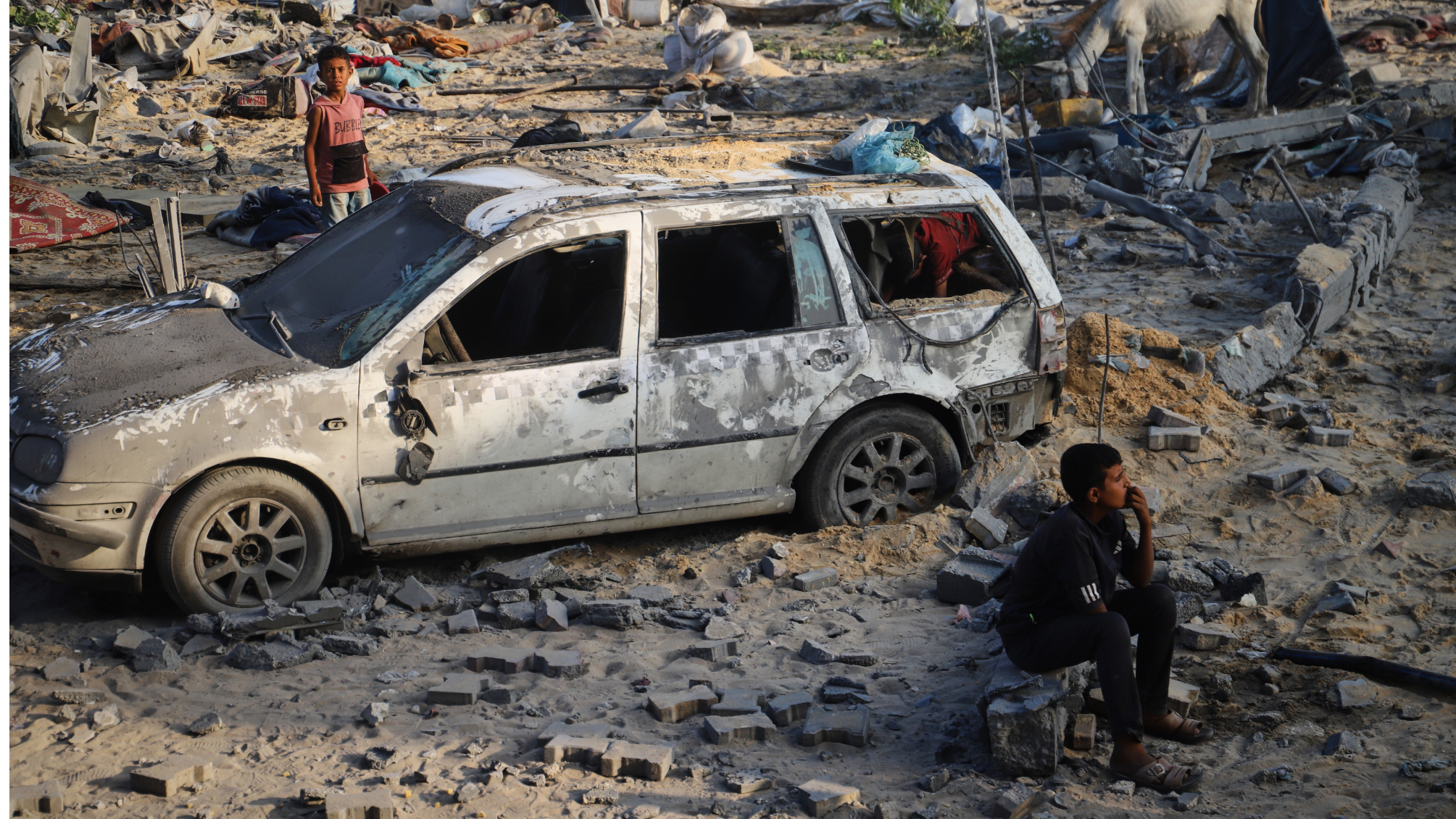
GAZA/UNITED NATIONS/THE HAGUE - At least 41 Palestinians were killed in Israeli shelling of the Gaza Strip on Monday, while 14 others died due to hunger and malnutrition amid the ongoing blockade, according to officials.
Mahmoud Basal, spokesman for the Civil Defense Authority in Gaza, told Xinhua that Israeli warplanes launched a series of airstrikes on residential neighborhoods and displacement shelters across the besieged enclave early on Monday, leaving dozens of casualties.
He said 25 people were killed in Israeli air raids targeting homes, makeshift tents for the displaced, and public gatherings in the city of Khan Younis in southern Gaza.
Basal added that seven Palestinians were killed and 22 others injured after Israeli forces bombed a crowd of civilians waiting for humanitarian aid near the US-backed aid distribution site at the Netzarim corridor in central Gaza.
ALSO READ: Israel announces daily 10-hour humanitarian pause in parts of Gaza
In separate incidents, three civilians were killed when an Israeli missile struck an apartment building in the Daraj neighborhood in eastern Gaza City, while two others lost their lives in an attack on the Namaa College area in northern Gaza, according to Basal.
In central Gaza, an Israeli airstrike killed a man, his wife, and their daughter in the Maghazi refugee camp. A separate attack on a house in Deir al-Balah killed one woman and wounded several others, Basal said.

Meanwhile, eyewitnesses reported that Israeli forces continued demolishing homes in the Shuja'iyya neighborhood of eastern Gaza City and in eastern Khan Younis.
There was no immediate comment from the Israeli army on these incidents.
In addition to casualties from military operations, the humanitarian situation in the enclave continues to worsen.
ALSO READ: Hamas reaffirms commitment to peace talks after criticism from US envoy
Gaza's health authorities reported Monday that 14 Palestinians, including several children, died in the past 24 hours due to famine and malnutrition caused by the Israeli-imposed blockade on Gaza, raising the total number of such deaths to 147, among them 88 were children, since the start of the conflict.
The Hamas-run government media office in Gaza said Monday that more than 40,000 infants under one year of age in Gaza are at risk of "slow death" as the continued Israeli blockade has prevented the entry of baby formula into the enclave.
Slight uptick in food aid
The amount of food aid reaching hungry Gazans following Israel's opening of avenues of access is only a slight uptick, a UN spokesman said on Monday.
"We've only had one day of this so far, so we'll have to see whether this improves," said Farhan Haq, deputy spokesman for UN Secretary-General Antonio Guterres. "But there was a small uptick from what we've been having, which was a few dozen trucks going in for these days."
Haq said only about 100 truckloads of aid entered the Gaza Strip on Sunday, which is about one-fifth of what should be getting through.
ALSO READ: UN says Gaza aid operations under severe strain
The UN Office for the Coordination of Humanitarian Affairs (OCHA) said that out of 17 missions requiring coordination with Israeli authorities on Sunday, only eight were facilitated, including the collection of fuel and supplies. Four missions, including the uplift of food cargo, were impeded but accomplished.
"The long-standing restrictions on the entry of aid have created an unpredictable environment with a lack of confidence by communities that aid will reach them," OCHA said. "This has resulted in many of our convoys being offloaded directly by starving, desperate people."
Dutch PM warning
Meanwhile, the Dutch government may take measures against Israel if agreements to allow humanitarian aid into Gaza are not upheld, Prime Minister Dick Schoof announced Monday in a statement on social media platform X.
Schoof has convened an emergency meeting in The Hague during the summer recess, bringing together government ministers including Deputy Prime Minister Sophie Hermans, Foreign Minister Caspar Veldkamp and Defense Minister Ruben Brekelmans, to discuss the worsening humanitarian situation in Gaza.
"The government's goal is crystal clear: The people in Gaza must have immediate, unhindered, and safe access to humanitarian aid," Schoof wrote.

Earlier this month, the European Union (EU) reached a deal with Israel aimed at facilitating greater humanitarian access to the Gaza Strip. That agreement is set to be reviewed Tuesday by EU member states. Should Israel be found to have fallen short in its commitments, further actions could be taken at the EU level.
The Dutch prime minister indicated that the Netherlands is also prepared to take unilateral steps if necessary.
"We are also considering national measures to increase the pressure," Schoof warned, adding that he had conveyed this message directly to Israeli President Isaac Herzog during a phone call on Monday.
Netanyahu plan
Israeli Prime Minister Benjamin Netanyahu is expected to present to the Israeli security cabinet a plan to annex parts of the Gaza Strip, the Israeli newspaper Haaretz reported on Monday night.
According to the report, Netanyahu told Israeli ministers that Israel has given Hamas a few days to agree to a ceasefire, or Israel will begin to gradually annex parts of the Strip in stages until Hamas surrenders.
READ MORE: Mistreatment of Gazans decried
The report added that Netanyahu is pursuing this course of action to maintain the support of the far-right Religious Zionist faction, which opposes both a ceasefire and increased humanitarian aid to Gaza.
Keeping the faction in the coalition is critical for Netanyahu to prevent his government from collapsing.


